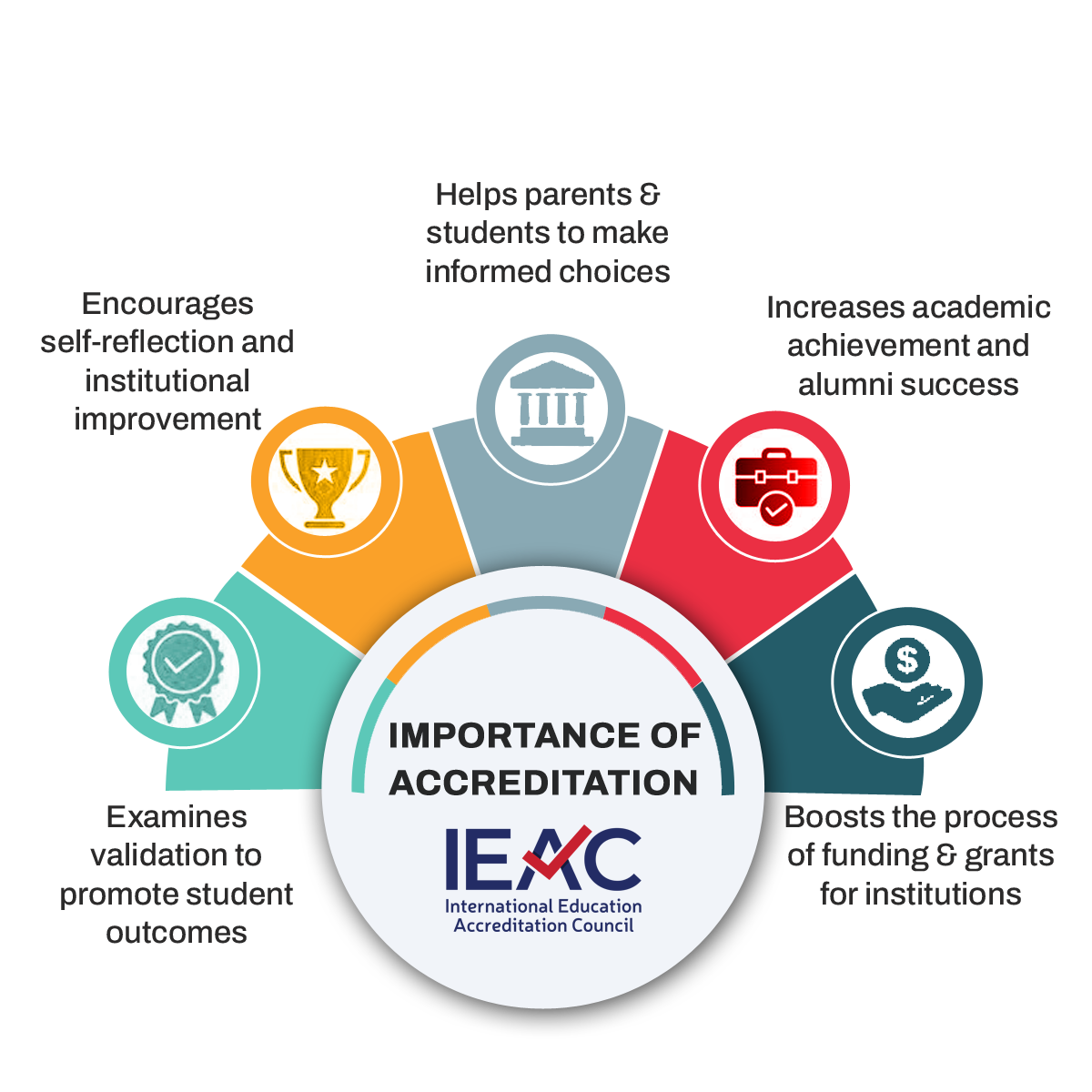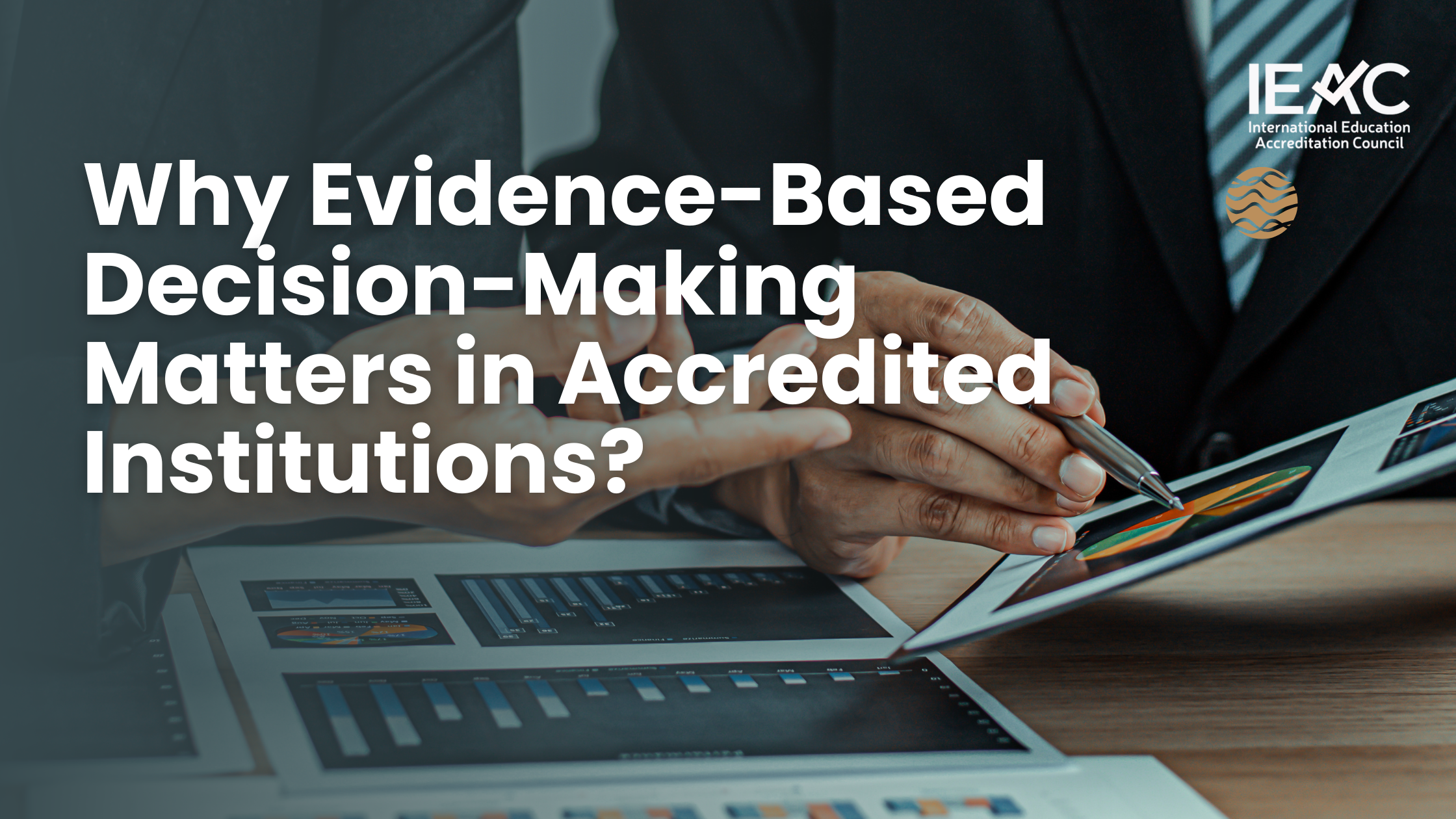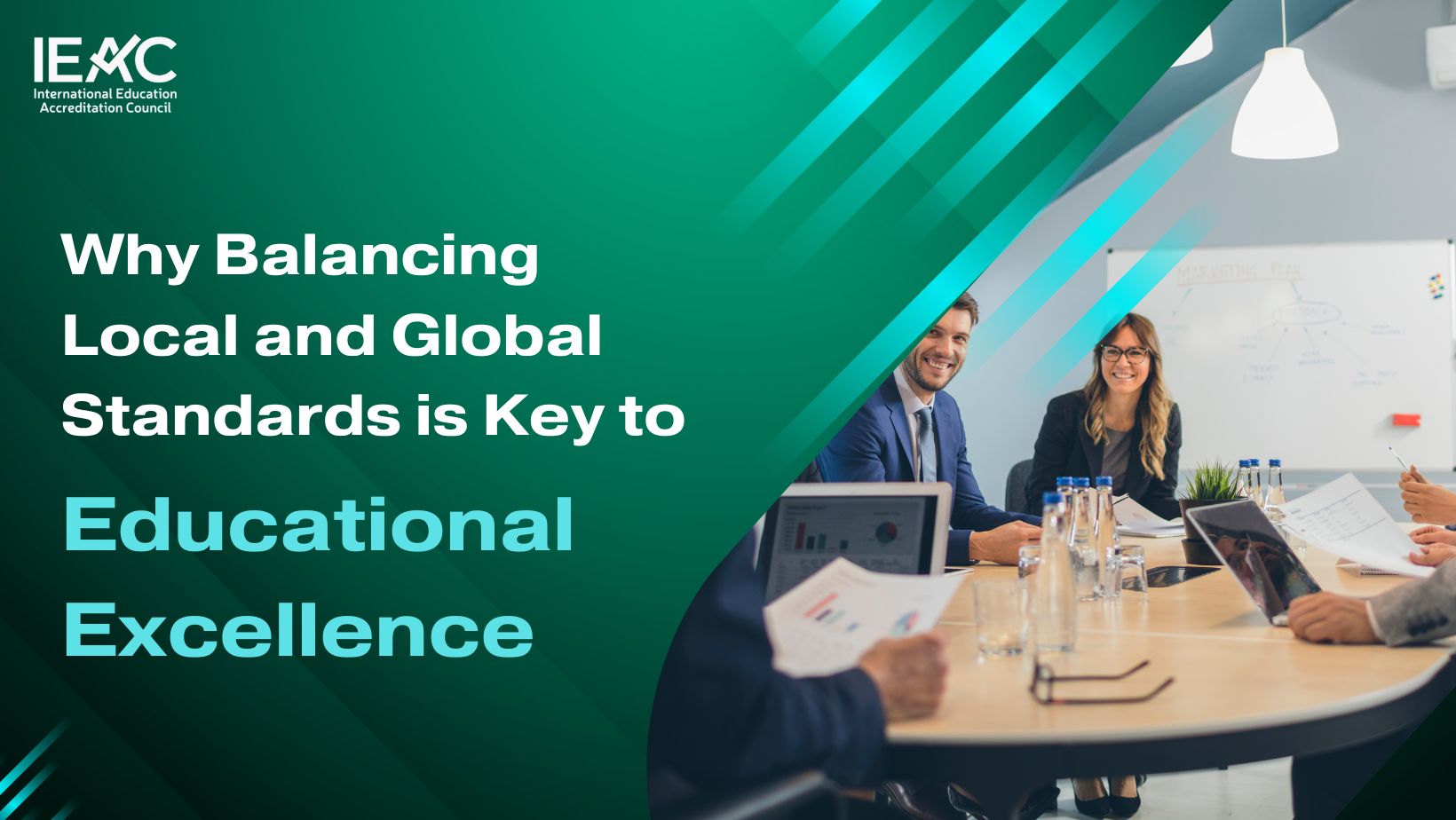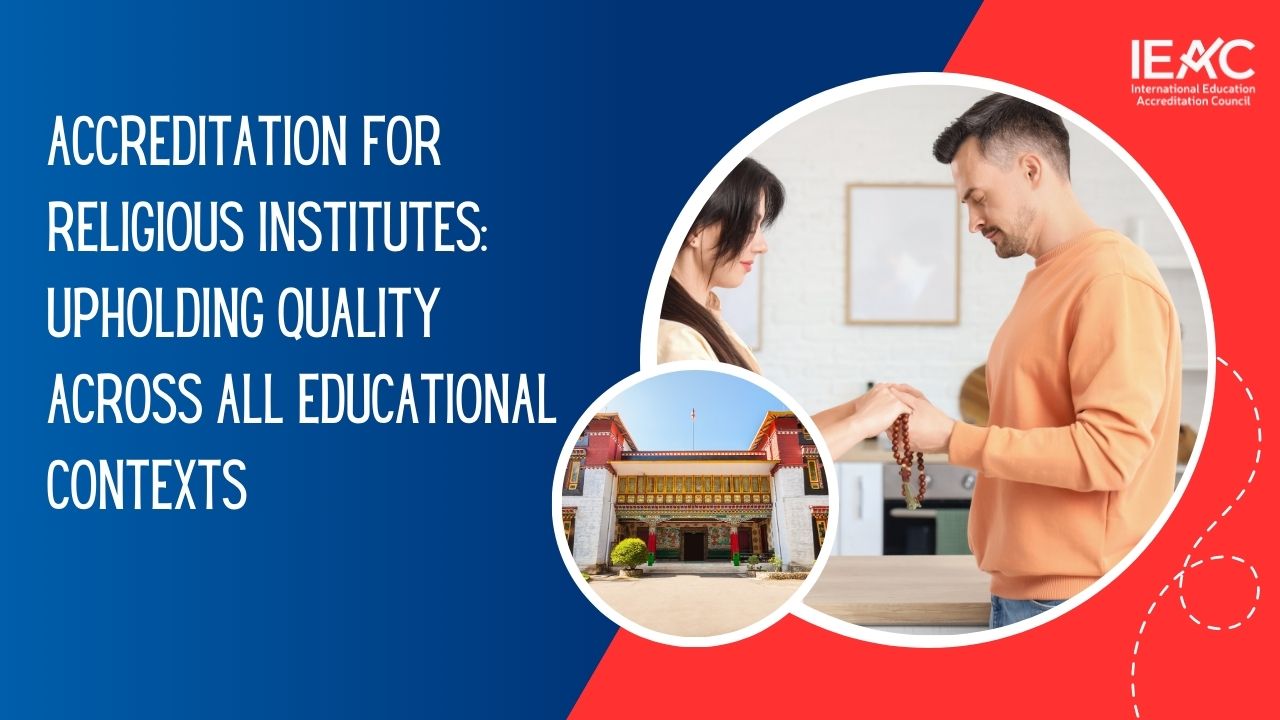- Home
- About IEAC
- Accreditation
- University Accreditation
- College Accreditation
- Online Institution Accreditation
- School Accreditation
- University Recruitment Agency Accreditation
- Programmatic Accreditation
- Teacher/ Lecturer Accreditation
- Religious Institutes Accreditation
- Affiliate Accreditation
- Research Accreditation Candidacy Accreditation
- IEAC Membership
- Institutions Accredited
- Accreditation Process
- Contact Us Webinar Apply Now
Blog
Unlocking Excellence: The Transformative Power of Accreditation for Educational Institutions
Lorem ipsum dolor sit amet, consectetur adipiscing elit, sed do eiusmod tempor incididunt ut labore et dolore magna aliqua. Quis ipsum suspendisse ultrices gravida. Risus commodo viverra maecenas accumsan lacus vel facilisis.

Unlocking Excellence: The Transformative Power of Accreditation for Educational Institutions
In today's dynamic educational landscape, the value of accreditation for schools and other educational institutions cannot be overstated. Accreditation not only serves as a hallmark of quality but also presents a myriad of opportunities for growth and improvement. The accreditation process, such as the one facilitated by the International Education Accreditation Commission (IEAC), goes beyond a mere stamp of approval; it acts as a catalyst for positive change, fostering self-study, networking, and enhancing the institzution's image.
One of the primary benefits of accreditation lies in the self-study phase. This introspective journey prompts institutions to critically evaluate their programs, teaching methodologies, and overall educational environment. Through this process, educational leaders gain invaluable insights into their strengths and areas that warrant improvement. It becomes an opportunity for introspection, allowing institutions to align their goals with the evolving needs of students and the broader community.

Accreditation also provides a unique platform for networking. Institutions engage with peer evaluators, professionals, and experts in the field during the accreditation process. This collaborative exchange of ideas fosters innovation and best practices, ultimately benefiting the institution's educational delivery. Networking opportunities extend beyond the evaluation period, creating lasting connections that can lead to partnerships, collaborative research, and shared resources.
Moreover, the accreditation process allows institutions to transmit a positive image to all stakeholders. Accredited status is a testament to an institution's commitment to quality and continuous improvement. It instils confidence in students, parents, and the community, creating a positive perception that extends far beyond the campus walls. Accreditation serves as a powerful marketing tool, attracting prospective students and enhancing an institution's competitiveness in the global education landscape.
For institutions seeking international recognition, accreditation through organizations like IEAC adds an extra layer of credibility. The rigorous standards set by such accrediting bodies ensure that accredited institutions adhere to global benchmarks, making their qualifications universally recognized and respected.
In conclusion, the accreditation process is not just a bureaucratic requirement; it is a transformative journey that brings about positive change. The self-study phase, networking opportunities, and the enhanced image achieved through accreditation contribute to the holistic development of educational institutions. As schools and other educational entities continue to navigate the complexities of the education sector, accreditation emerges as a beacon guiding them towards excellence and relevance in the ever-evolving landscape of learning.






